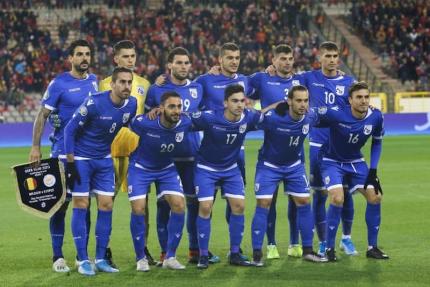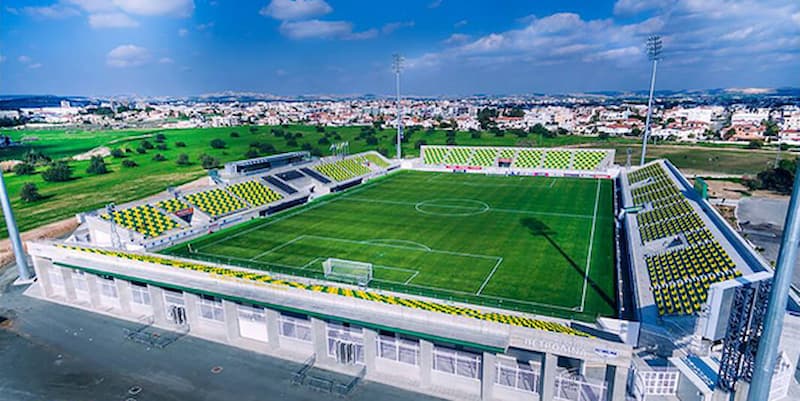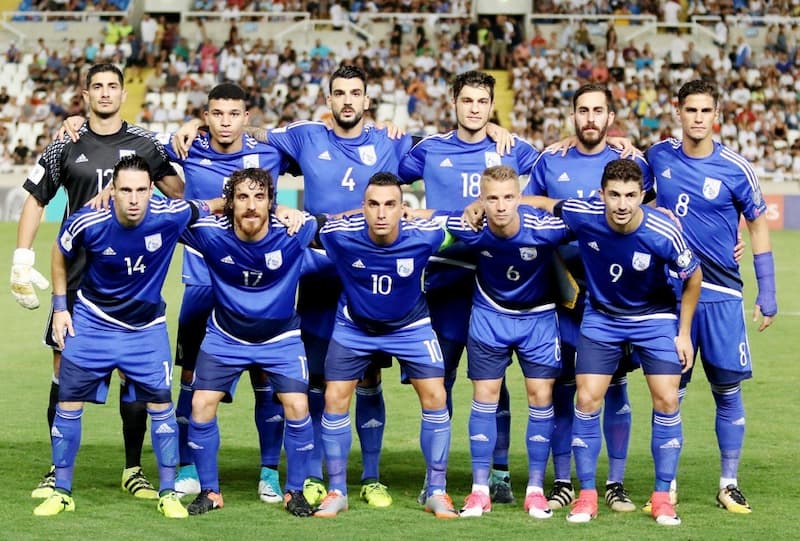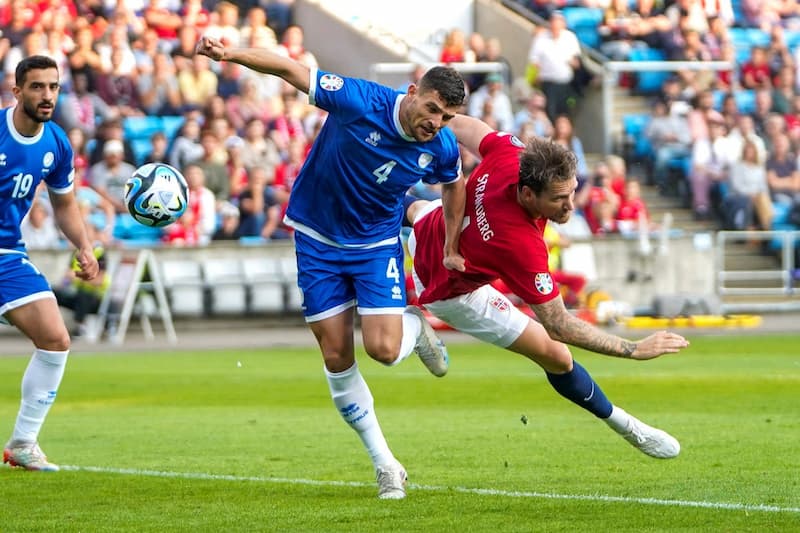Get free consultation
Fill out the form and we will contact you
The Cyprus national football team (Cyprus NT) represents the Republic of Cyprus and is managed by the Cyprus Football Association. Since its establishment, the team has not yet participated in any continental or world final tournaments. Explore this article to gain a deeper understanding of the history and players of the Cyprus NT.
The Cyprus football team is governed by the association established in 1934 and joined FIFA and UEFA in 1948. Over nearly 70 years of activity, the team has yet to achieve significant accomplishments.
The Cyprus NT logo features blue and white as its main colors. The home kit is primarily blue, while the away kit is white or black.
Currently, the Cyprus national football team plays at AEK Arena – Georgios Karapatakis, in use since 2021. Previously, they used the GSP Stadium in the capital, Nicosia. The stadium has a seating capacity of around 8,000 and is equipped with modern facilities to accommodate spectators.
New stadium AEK Arena with over 8,000 seats
The Cyprus national football team is currently led by head coach Bulent Aytac, who has achieved notable progress. Aytac has worked closely with his team to develop a comprehensive attacking-defensive approach.
Using formations such as 4-2-3-1 or 4-5-1, the team balances solid defense with quick counterattacks. Under the guidance of a skilled coach, the team maintains discipline, tactical organization, and a resilient, determined spirit.
The Cyprus national football team features several notable players:
Ioannis Okkas: Legendary striker and the most capped player for the national team with 103 appearances.
Marios Elia: One of the most long-serving and loyal players.
Demetris Christofi: A familiar face in the 2010s, who also played professionally in Switzerland.
Several notable players in the Cyprus team include Okkas and Elia
The Cyprus national team, with a history spanning over 65 years, has experienced many ups and downs. Although the team has yet to participate in major tournaments such as the World Cup or the European Championship, it has delivered some memorable performances in qualifying rounds.
In 1962, the Cyprus NT played its first international match against Turkey, losing 0-5. Despite the defeat, the tireless efforts of multiple generations of players, under challenging conditions, offer hope for the future of football on the island.
The Cyprus national football team has never qualified for the World Cup or Euro finals, yet it has left several notable marks:
A 4-4 draw with Portugal in the Euro 2012 qualifiers away from home.
A 2-1 victory over Bosnia & Herzegovina in the Euro 2016 qualifiers.
A win against Slovenia and a draw with Greece in the WC 2022 qualifiers.
Highest FIFA ranking in history: 43 (September 2010).
Runner-up in the 2018 ConIFA World Football Championship.
The Cyprus national football team does not have many notable achievements
In Cyprus, football is an important part of life and culture. Every weekend, stadiums of all sizes are bustling, and lively atmospheres fill cafes and restaurants. People regularly follow football competitions and cheer for their favorite teams, both domestic and international.
Participation in amateur football clubs is high, providing opportunities for fitness and strong social connections. Additionally, numerous tournaments, ranging from amateur to professional levels, are organized. This not only motivates young players to develop but also enhances community and social engagement.
The development of the Cyprus national football team is a key concern for local managers and the football association. Although the team has a long history, its achievements remain modest. Specific areas include:
Developing youth teams is a challenge for many countries, not just Cyprus. Despite having a large pool of young players, the lack of structured training programs has limited their skills and abilities. Currently, policies aim to attract talented individuals, with many retired players returning home to train and mentor the younger generation, contributing to the growth of Cypriot football.
Cyprus focuses on developing young players
Infrastructure plays a crucial role in the development of the Cyprus national football team. The football association concentrates resources on building stadiums, training centers, and sports facilities to provide players with opportunities for practice and competition.
These facilities not only serve the national team but also support clubs competing in a professional environment. Proper and adequate investment creates motivation and consistency, fostering sustainable football development and producing talented players in the near future.
The Cypriot First Division currently plays a very important role as the country’s highest professional league. Established in 1934, the league features 14 teams competing each season for the championship and opportunities to participate in European competitions.
Clubs such as APOEL Nicosia, Omonia Nicosia, and AEL Limassol are perennial title contenders. APOEL Nicosia is the most successful club in the league’s history, having won multiple championships. Matches attract significant spectator interest and involve successive generations of players, providing young talents with opportunities to showcase their skills and develop.
As European and international football continues to advance, the Cyprus team has plans and strategies to improve its level. The most important goal is to develop young talent through well-structured training programs.
Training young players for long-term development in Cyprus
The Cyprus Football Association and local football bodies have invested in numerous youth academies. Players are carefully selected and receive structured training to develop their talents. This approach nurtures players comprehensively, covering physical fitness, mental strength, and football skills, ensuring a strong next generation of players for the future.
There is hope that the Cyprus national football team will eventually participate in major tournaments such as UEFA, Euro, and the World Cup. With challenges, opportunities, and a well-structured development strategy, it is expected that in the near future, the Cyprus NT will compete in more major competitions and achieve higher rankings in the FIFA standings.
This overview of the Cyprus national football team aims to provide accurate knowledge and information. In addition to this content, if you are interested in Cyprus residency or the Cyprus Golden Visa, visit quoctichthuhai.com for support. Our team of skilled consultants offers professional guidance and expertise in administrative procedures for obtaining Cypriot citizenship.
Fill out the form and we will contact you





